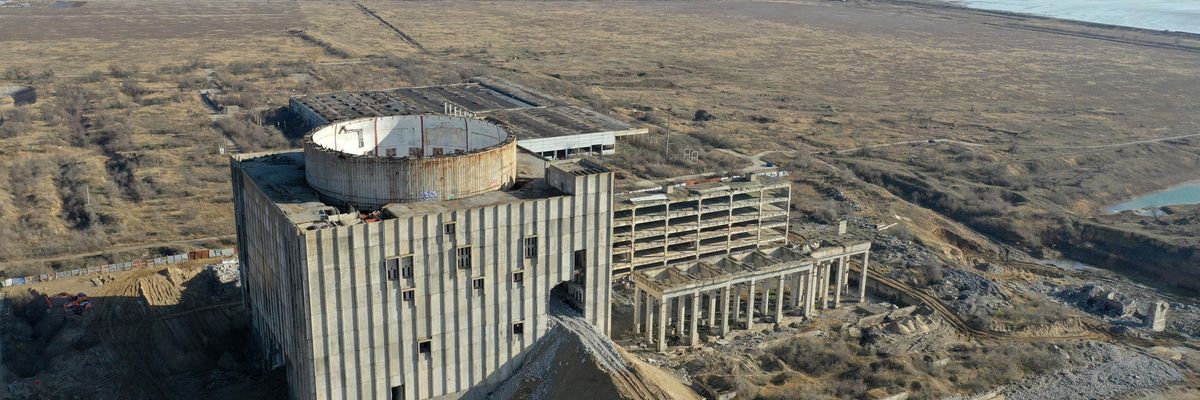Escalating tensions between Ukraine, NATO and Russia caused after Russia recognised the breakaway republics of Donetsk and Luhansk has seen the Cold War spectre of nuclear war between Russia and the United States return to haunt public consciousness. While public opinion is divided on whether Russia plans to invade Ukraine proper, the fear that a nuclear war will erupt should the US or NATO intervene to assist the Ukrainians directly, by sending troops to Ukraine for example, is universal.
No precedent exists to estimate the damage that could be caused by a military strike against a nuclear facility as no major conflict has been fought in a country with so many reactors before.
Although this prospect has heightened fears of global nuclear apocalypse, Ukraine, along with several neutral neighbouring countries, is already faced with nuclear catastrophe in the event of a full-scale war with Russia even if Russia prosecutes this war using conventional weapons or NATO does not intervene in the conflict. This is because Ukraine's sizeable nuclear fleet of 15 reactors could be attacked, either accidentally or deliberately targeted, by enemy action or sabotage by rebels in the event of war. Granted, no precedent exists to estimate the damage that could be caused by a military strike against a nuclear facility as no major conflict has been fought in a country with so many reactors before. It is nonetheless fairly reasonable to presume that, if only a few of these power stations were damaged, Pripyat will not be the only deserted town in Ukraine that would have had to have been abandoned through nuclear calamity by war's end. It is just as reasonable to presume that the damage and panic caused by an attack on a nuclear power station would be greater than that on a comparable fossil fuel or renewable energy power station. Put differently, that the harm, broadly defined, wrought by an attack(s) on its energy system would be less but for the existence of its civilian nuclear power programme.
The prospect of widespread and unimaginable levels of destruction in the event of a conventional war solely because of the existence of a country's nuclear industry seriously undermines, rubbishes even, the attempts that nuclear supporters have made to distinguish between the use of nuclear technology for civilian or peaceful purposes and military uses. Arguably, if the existence of a significantly large nuclear industry renders a country vulnerable to the risk of nuclear annihilation, it is moot whether that country's enemies attack it with nuclear or conventional weapons. If so, the distinction between a military and civilian programme is illusory. The only option available to counter this, or so the patriot would argue, is for one's country to develop nuclear weapons of its own or for it to signal that it is prepared to attack and destroy the enemy's civilian nuclear facilities in the event of war, should its enemies have civilian nuclear industries of their own that is. In other words, to subscribe to the policy of Mutually Assured Destruction (MAD) that is the bedrock of nuclear detente. Taken to this conclusion, the distinction between a civilian and military nuclear programme is irrelevant for policymaking purposes, at least when it comes to matters of national defence in countries with nuclear programmes.
The surest way to sunder this link and to make countries that have or wish to establish civilian nuclear programmes feel safe is to banish war entirely or to ban the use of nuclear technology under any circumstances. Since history, sadly, teaches us that humankind is unable to resist the urge to succumb to its martial tendencies, it stands to reason that it will be much easier to abolish the use of nuclear technology to prevent the scenario of MAD. Based on this assessment, one moves that citizens ought to lobby their governments to forgo nuclear power if they wish to relieve the anxiety sweeping the globe because of events unfolding in Ukraine and genuinely desire to make the world a safer place in future.

